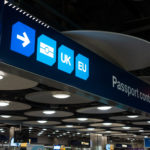Boeing’s board of directors are facing a lawsuit from shareholders over two fatal crashes which led to the grounding of the 737 MAX.
A MAX operated by Lion Air crashed in Indonesia in 2018, which was followed by the crash of an aircraft operated by Ethiopian Airlines in 2019. All 346 people on board the aircraft were killed. US judge Morgan Zurn ruled that the first crash should have been treated as a “red flag,” adding that the incident had raised issues about the aircraft’s key flight control system. She described this as a warning “that the board should have heeded but instead ignored” within her 102-page decision.
Delaware Chancery Judge Zurn said the real victims were those who died and their families but investors had also “lost billions of dollars”.
She added: “While it may seem callous in the face of [the families’] losses, corporate law recognizes another set of victims: Boeing as an enterprise, and its stockholders. Stockholders have come to this court claiming Boeing’s directors and officers failed them in overseeing mission-critical airplane safety to protect enterprise and stockholder value.”
Lawsuits will focus on board oversight
According to a complaint filed by the New York State Common Retirement Fund and the Fire and Police Pension Association of Colorado, Boeing’s board didn’t move to gain greater oversight over quality and safety until the second crash in Ethiopia in March 2019. Investors claim that the board failed to focus on safety even before the first crash.
Zurn wrote that the disaster should have alerted Boeing directors to the safety issues but instead, board members “ignored the Lion Air Crash and the consequent revelations about the unsafe 737 MAX.” Investors claim their lack of action led to the second fatal crash in 2019.
The second disaster, which brought the death toll from the two accidents to 346, resulted in the global grounding of the 737 MAX, plunging Boeing into one of the deepest crises in its history.
Investigations identified a flaw in the aircraft’s MCAS automated flight control system which was implicated in both crashes. Boeing paid $2.5bn to settle criminal charges that it concealed information about changes to MCAS from safety officials in January. The company is also facing civil lawsuits from the victim’s families.
Different investors’ suits against company directors have been consolidated in state court in Delaware. Vice Chancellor Zurn has already thrown out some of the investors’ claims against individual board executives, including one regarding a decision to award former chief executive Dennis Muilenburg a $60m retirement package after he was fired.
Board failed to make “any good faith effort” to implement safety monitoring
Zurn said it was the board that failed to “make any good faith effort to implement and oversee a board-level system to monitor and report on safety.”
The investors claim David Calhoun, who was lead director when the fatal accidents occurred, made “public representations” he knew were false about the board’s response to the first 737 MAX crash in hopes of salvaging directors’ reputations. Zurn backed their contentions, noting Calhoun made four misstatements after Lion Air Flight 610 crashed into the Java Sea in 2018, killing, all 189 people aboard.
A Boeing spokesperson told the BBC: “We are disappointed in the court’s decision to allow the plaintiffs’ case to proceed past this preliminary stage of litigation. We will review the opinion closely over the coming days as we consider next steps.”
The Max was cleared to fly in the US in November 2020, and in Europe and Canada in January this year. It remains grounded in China. Boeing’s shares have slumped following the accidents and are yet to fully recover.
The case is In Re Boeing Co. Derivative Litigation, 2019-0907, Delaware Chancery Court (Wilmington).

